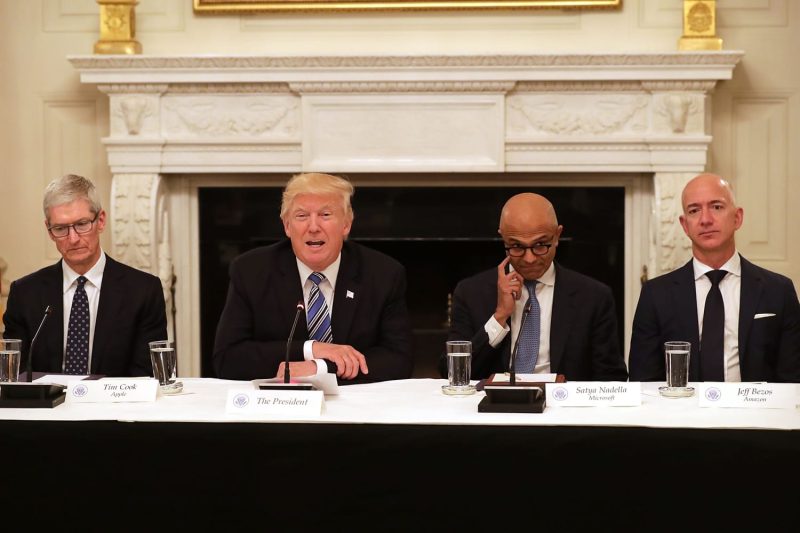The Wall Street’s Anticipated Shift in Deal-Making Dynamics Under the Trump Presidency
The financial landscape of Wall Street is preparing for a significant upheaval as the impending Trump presidency promises to bring about a new era of deal-making dynamics. With Donald Trump’s background as a businessman and dealmaker, there is a prevailing sense of anticipation and speculation among investors and industry experts alike regarding the potential impact his administration could have on business transactions and negotiations in the years ahead.
One of the key expectations surrounding the Trump presidency is the potential for a more business-friendly environment that could facilitate large-scale deal-making and mergers across various sectors. The President-elect’s campaign rhetoric has been strongly focused on revitalizing the American economy, creating jobs, and fostering a climate conducive to corporate growth and expansion. This pro-business stance has elicited optimism among many on Wall Street, who foresee a more welcoming regulatory environment that could pave the way for increased deal activity and investment.
Furthermore, Trump’s proposed policies, such as tax reforms and deregulation, have the potential to incentivize corporations to engage in mergers and acquisitions as a means to achieve growth and enhance competitiveness. The promised reduction in corporate tax rates and the relaxation of regulatory burdens could lower barriers to entry and make it more appealing for companies to pursue strategic partnerships and acquisitions as a means to expand their market share and capitalize on synergies.
Additionally, the Trump presidency is anticipated to usher in a period of uncertainty and volatility in the global geopolitical landscape, which could have reverberations on deal-making activities. The administration’s stance on trade agreements, foreign policy decisions, and international relations could introduce a new set of risks and opportunities that may influence the strategic considerations of companies engaging in cross-border transactions.
While the prevailing sentiment on Wall Street appears to be one of cautious optimism regarding the potential for increased deal-making opportunities under the Trump administration, there are also concerns and uncertainties surrounding the broader economic outlook and policy implications. The impact of Trump’s unorthodox approach to governance, his unpredictable communication style, and the potential for trade disputes with key trading partners could introduce elements of unpredictability and volatility that may complicate deal-making decisions and outcomes.
In conclusion, the Wall Street’s expectations surrounding the Trump presidency and its implications for deal-making dynamics are characterized by a mix of optimism, anticipation, and apprehension. The anticipated shift towards a more business-friendly regulatory environment, coupled with the potential for policy reforms that incentivize corporate activity, has set the stage for a potentially transformative period in the realm of business transactions and negotiations. However, the inherent uncertainties and risks associated with the evolving geopolitical landscape and the unconventional nature of the incoming administration’s approach could introduce complexities that may test the resilience and adaptability of market participants in the years to come.
As Wall Street braces for the dawn of a new era under the Trump presidency, the coming months and years are likely to witness a recalibration of deal-making strategies, a reevaluation of risk profiles, and a reimagining of the possibilities and challenges that lie ahead in the ever-evolving landscape of corporate transactions. Only time will tell how the promises and perils of the Trump administration will shape the future of deal-making on Wall Street and beyond.



























